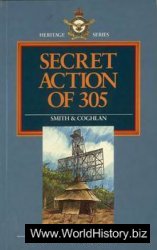Grand master of the Teutonic Order (1256-1273) during one of the order’s most difficult periods.
Anno was probably born into the lower nobility of the Thuringian town of Sangerhausen between 1210 and 1220. Nothing is known about his early career within the Teutonic Order. From 1254 (or perhaps late 1253), he was master of the order’s Livonian branch, until the chapter general elected him grand master in 1256. During his mastership, Anno traveled extensively between the Holy Land, Rome, Germany, and the Baltic lands. He struggled to secure crusader aid against the Curonians and Prussians, who had started a great insurrection in 1260 that lasted until 1273. In Palestine the advance of Sultan Baybars of Egypt threatened the order’s possessions: Montfort, the order’s main castle, fell in 1271. Both the Baltic region and the Holy Land demanded Anno’s commitment, which led to tension within the order. While Anno was in the West between 1261 and 1267, the chapter general in Acre decreed that the master should not leave the Holy Land for extended periods in the future (1264). Soon after the loss of Montfort, however, Anno left for the empire, where he died on 8 July 1273.
-Axel Ehlers
Bibliography
Labuda, Gerard, “Anno von Sangerhausen,” in Die
Hochmeister des Deutschen Ordens, 1190-1994, ed. Udo Arnold (Marburg: Elwert, 1998), pp. 31-33.
Urban, William, The Baltic Crusade, 2d ed. (Chicago: Lithuanian Research and Studies Center, 1994).
-, The Prussian Crusade, 2d ed. (Chicago: Lithuanian
Research and Studies Center, 2000).
Wojtecki, Dieter, Studien zur Personengeschichte des Deutschen Ordens im 13. Jahrhundert (Wiesbaden: Steiner, 1971).
Arabic intellectual culture shared by Christians and Muslims in Mesopotamia.
Among other Syriac and Arabic sources, the author used the lost work of a well-informed eyewitness, the metropolitan Basil (d. 1169), and largely shared his fierce critique of the Syrian Orthodox clergy of Edessa. In 1187 the author became a witness to the conquest of Jerusalem by Saladin. Later he joined the entourage of Gregory, the maphrian (primate) of the eastern part of the Syrian Orthodox Church.
-Dorothea Weltecke
Bibliography
Anonymi Auctoris chronicon ad annum Christi 1234pertinens, ed. and trans. Jean-Baptiste Chabot, Albert Abouna, and Jean-Maurice Fiey, 4 vols. (Louvain: Peeters, 1952-1974).
“The First and Second Crusades from an Anonymous Syriac Chronicle,” ed. and trans. A. S. Tritton and Hamilton A. R. Gibb, Journal of the Royal Asiatic Society 92 (1933),
69-102, 273-306.




 World History
World History









